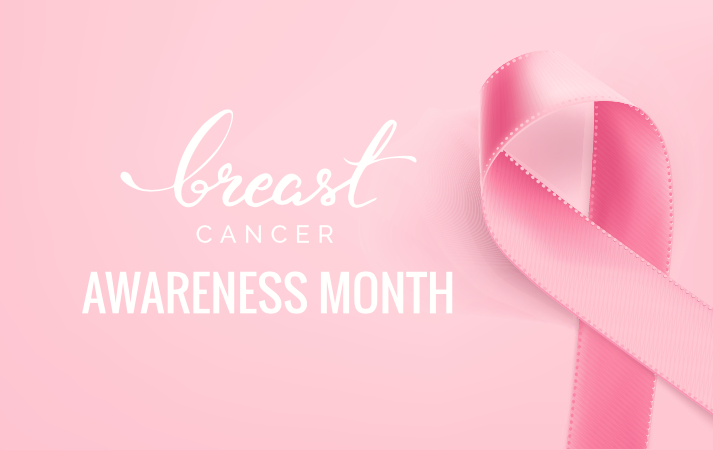It is a time to remember all of those who have lost their battle with breast cancer. It is also a time to remember that we must carry the torch to educate as many women as possible about the importance of self-awareness, annual screening, and support the cause.
Most people in the United States know a friend or family member who has been impacted by breast cancer. The following stats show how much of a widespread issue it is:
- One in eight women will develop breast cancer in their lifetime.
- 246,000 new cases of invasive breast cancer will be diagnosed this year.
- As of this year, there are more than 2.8 million women who have had, or are being treated for, breast cancer.
5 Year Survival Rates Based on Stage
Localized. If the cancer cells have not spread outside of the breast tissue, 99% of women live five years or longer.
Regionalized. If the cancer cells have spread to nearby tissue, 84% of women live five years or longer.
Distant (Metastasis). If the cancer cells have spread to other parts of the body, 26% of women live five years or longer.
The combination of mammography, regular breast exams by your health care professional, and awareness of changes in your breasts may be the best way to find breast cancer early when it is more easily treated.
Women who are not at high risk of breast cancer should start breast cancer screening at age 40 and no later than age 50. Women at higher risk may be screened before age 40. Talk to your health care professional about the benefits and risks of mammography.
Other side effects of breast cancer treatments: When you have breast cancer, you begin to deal with an array of symptoms and side effects from treatments that can seem overwhelming. One side effect that many women do not expect is dyspareunia (painful intercourse).
The MonaLisa Touch is a non-surgical, non-pharmacological way to prevent and treat symptoms of vaginal dryness and atrophy.
Many of the current treatments for vaginal dryness and atrophy—when vaginal tissue becomes dry,, thin and less elastic—involve topical hormone creams or hormone replacement therapies. This type of treatment isn’t recommended for women with breast cancer. MonaLisa Touch is an in-office treatment that does not involve any medications or hormones, making it a safe option for breast cancer patients.
In support of all breast cancer survivors and in honor of OCTOBER being Breast Cancer Awareness Month, Walnut Lake OB/GYN and Wellness would like to “GIVE BACK and HONOR breast cancer survivors” by sharing our patient education video on MonaLisa Touch. We are also offering $300 off to survivors who might benefit from this life-changing treatment *can not be combined with any other offer, only valid through October 31st.

